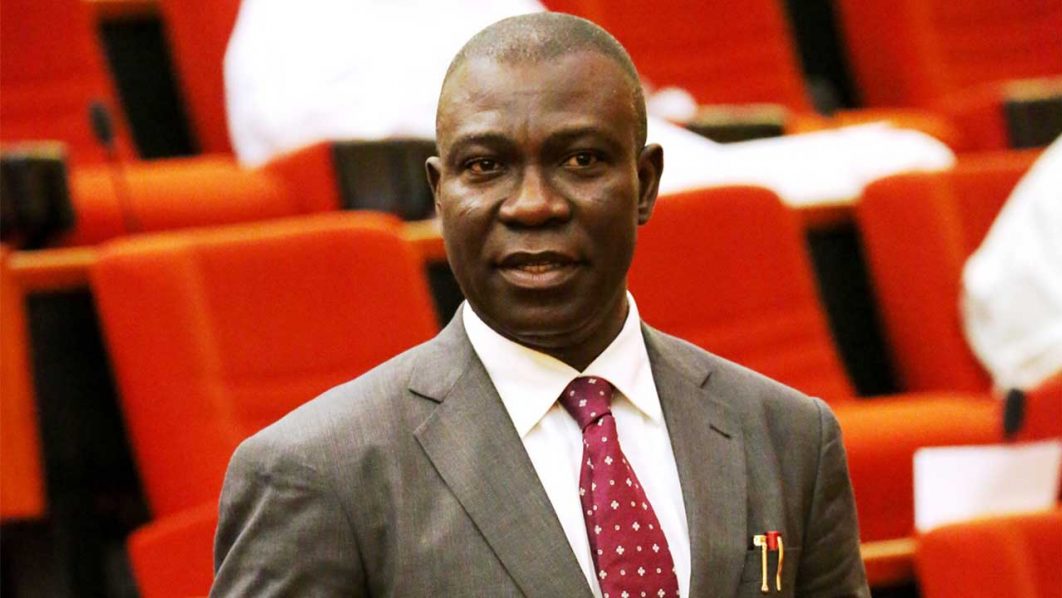Former Deputy President of the Senate, Ike Ekweremadu, has advocated the amendment of the 1999 Constitution to reflect a single-term rotational presidency.
Ekweremadu made the call on Monday in Lagos while speaking at Nigerian Bar Association (NBA) Ikeja Branch Law Week 2021 with the theme “The Nigeria of Our Dreams.”
The Chairman of the Senate Committee on Electoral Reforms and Constitutional Amendment said that he had long advocated for a single presidential term of five or six years.
“This will help us circumvent the distractions, manipulations, divisiveness, and excesses that come with quest for a second term of executive offices.
“It will as well ensure that power rotates more frequently among the various sections and groups.
“If people are sure that it will get to them, the struggle for it by various sections will be less desperate.
“Besides, it is better if every President or Governor understands that he or she has only a single term to begin and complete all his or her good works,” he said.
Ekweremadu said that this model had worked for some Latin American democracies in the 1970s when they faced a similar challenge of excessive contestation for power.
He said that some Latin American countries adopted the model for a fixed period of time and had since reverted to two presidential terms after their democracies stabilized.
“Some others such as Mexico still operate a single term of six years,” he said.
Ekweremadu noted that a region’s access or lack of access to political power affected public attitude and sense of belonging in governance and democracy.
He said that there was nothing to prove that sections of Nigeria that produced presidents or military Heads of State were better off than those that had not.
“Save the patronage enjoyed by a privileged few, rotational presidency is nevertheless imperative in our African environment where ethnoreligious and sectional sentiments are still high.
“So, in the higher and long-term national interest, it is time to revisit and entrench the idea of the rotational presidency.
“This idea was first muted in Nigeria by the late military Head of State, General Sani Abacha, in his 1995 Independence Anniversary speech,” he said.
Speaking, a Senior Advocate of Nigeria (SAN), Mr. Joe-Kyari Gadzama, called for the devolution of some centralized powers between the Federal, State, and Local Governments.
He said that the centralized nature of powers of government under the federal system had stood against the equal and progressive development of states and local government areas.
“It also stands against the effective exploration of the resources in Nigeria for development purposes.
“I believe that the need to devolve some of the powers vested at the center will also serve the interest of government in providing Nigerians with the opportunity to succeed.
He said that to achieve this, some items must be moved from the exclusive legislative list to the concurrent list.
Gadzama noted that a list of items to be undertaken solely by the local government should be introduced by the constitution to be called the ‘residual list.’
The SAN said the general legislative limitation for local government which was contained in Section 4(7)(a) of the 1999 constitution should be deleted.

 Entertainment1 week ago
Entertainment1 week ago
 Entertainment4 days ago
Entertainment4 days ago
 Comments and Issues1 week ago
Comments and Issues1 week ago
 Comments and Issues1 week ago
Comments and Issues1 week ago
 Business1 week ago
Business1 week ago
 Comments and Issues1 week ago
Comments and Issues1 week ago
 Health6 days ago
Health6 days ago
 Football6 days ago
Football6 days ago

